Political Perspectives is produced by the students and faculty of Carleton University's School of Journalism and Communication, Canada's oldest journalism school.
6th
JUN 2009
Election eve
Posted by padams under All, Political Strategy
Paul Adams
Zahle, Bekaa Valley, Lebanon
Dozens of cars carrying supporters of the Lebanese Forces — a Christian party — paraded their colours on election eve on the street in front of our hotel.
And then…
…dozens of these vehicles rumbled by after them…
Paul Adams teaches journalism at Carleton and in is Lebanon this week as an election observer with the National Democratic Institute for International Affairs (NDI).
6th
The ads
Posted by padams under All, Political Strategy
Paul Adams
Zahle, Bekaa Valley, Lebanon
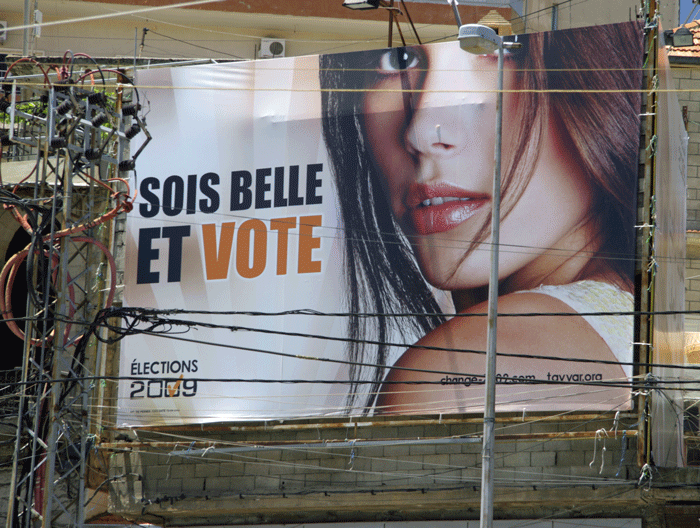
Lebanon's notoriously unreliable state-owned electricity utility has led to a proliferation of local grids. State corruption has been a target of General Michel Aoun's Free Patriotic Movement, which has also distinguished itself with a flashy ad campaign. This ad is aimed at young Christians
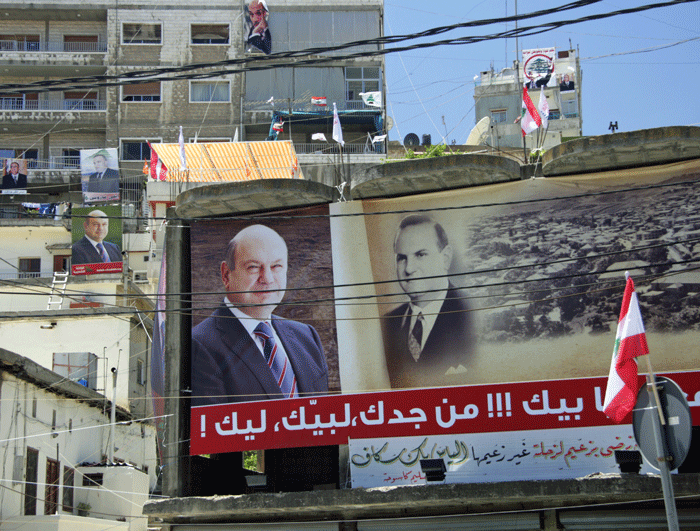
Since Ottoman times, the Skaff family has been among the most dominant in the Bekaa Valley. The Skaffs are now aligned with the March 8 coalition, which includes Hezbollah along with General Aoun's mainly-Christian party. The city of Zahle in the middle of the Bekaa is itself mainly Christian and the competition for votes here is fierce. In the background, you can see the cedar logo of the Lebanese Forces, a Christian party that backs the March 14 coalition.
5th
JUN 2009
Winning the observer lottery
Posted by padams under All, Political Strategy
Paul Adams
Beirut
Election observers may just be the ultimate political wonks. Having arrived in Beirut, many of them jet-lagged from travelling across the globe, the NDI observers for this Sunday’s Lebanese elections were immediately plunged into two days of briefings, running nine or ten hours a day.
The briefings covered Lebanese political history, Lebanese constitutional and electoral law, and the evolution of political culture. There have been briefings on and from the major parties, domestic monitoring groups, and electoral officials. Then there are briefings from NDI: on security, observation procedures, and the political geography of the country.
Observers are emphatically not encouraged to wander around sight-seeing. Partly, in Lebanon, that is a security issue. But equally important to an observation mission is avoiding any suggestion of electoral tourism: some European observers (from another mission) were caught sunbathing on the beach the other day, attracting unfavourable coverage in the local media.
So in lieu of sampling the tourist delights, the moment all serious observers wait for is getting their election day assignments. The organizers don’t release this information until the last moment, to avoid the same kind of jockeying you get when Peewee hockey team lists are named. Just like everyone wants Johnny on the team with his buddy or the one with the great goaltender, observers want to get the constituency with the hottest, most intensely competitive race.
Well, this time I won the lottery. I am off to Zahle in the fabled Bekaa Valley in the morning. Zahle has two Greek Catholic seats, and one Shia, one Sunni, one Maronite, one Greek Orthodox and one Armenian Orthodox. In an election where commentators confidently predict 90% of the races without fear of contradiction, Zahle is the one no one wants to guess at.
In an election some say will come down to a matter of just a few seats between the March 8 coalition — including the big Shia parties and General Aoun’s Christian movement — and March 14 — which includes the big Sunni party as well as most of the other Christian parties — many think the race in Zahle will decide how the country goes.
So, I just won the lottery!
One of my dinner companions this evening, who comes from the region, predicted skirmishes on election day. However, nothing serious, he assured me. NDI has a very risk-averse security policy, so unlike my days as a working journalist, if trouble does occur, I have to head in the other direction.
But Lebanon will have its day on Sunday, at the top of the world’s news, and Zahle may just be at the top of Lebanon’s. So wish me luck.
Paul Adams teaches journalism at Carleton and in is Lebanon this week as an election observer with the National Democratic Institute for International Affairs (NDI).
5th
Adams and Waddell in Policy Options
Posted by padams under All, Media Commentary, Political Strategy
Paul Adams
Chris Waddell and I both have pieces in this month’s Policy Options.
4th
JUN 2009
Lebanon Election Pix
Posted by padams under All, Political Strategy
Paul Adams
Beirut
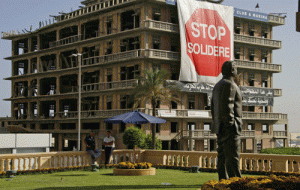
This requires a bit of explanation. The statue is of Rafik Hariri, the former prime minister murdered by a car bomb so enormous that it damaged the buildings around it, including the hotel building you can see in the background. Someone has draped it with a banner protesting the downtown Beirut redevelopment championed by Hariri, but which also drove up the national debt and was allegedly rife with corruption.
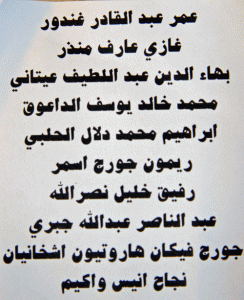
This is a ballot (for the March 8th slate I am told). The parties prepare these filled-in ballots which are handed to supporters, and then deposited in an envelope that goes into the ballot box.
Paul Adams teaches journalism at Carleton and in is Lebanon this week as an election observer with the National Democratic Institute for International Affairs (NDI).
4th
Lost and found
Posted by cwaddell under All, Media Commentary, Political Strategy
Christopher Waddell
Let’s say you work in a store or business and someone comes to see you for a meeting. At the end of the meeting they leave, but forget a binder of documents they brought with them. What do you do?
You could wait and see if they notice they have misplaced something and if they don’t call, just throw the material out. You could look through the material in the folder to determine if there was anything in it that you could use to your advantage and then maybe let them know they had left it behind. (You would have to decide whether to tell them that you looked through it.)
Or you could decide not to look through it but just call the person right away to let them know they had forgotten something and they should come back and retrieve it.
I know that’s what I hope would happen if I was the one who left something behind. It’s clear to me that is the most ethical way to deal with such an issue.
Should the same ethical standard apply when it is a binder of documents about Atomic Energy of Canada left by a minister in this case Natural Resources minister Lisa Raiit or a staff person, in a news organization’s office?
CTV doesn’t think so. It kept the binder for six days presumably waiting to see if anyone would notice it was gone (although it isn’t clear how CTV would determine if that had taken place), read it and reported some of its contents on the air.
It raises good questions that should be debated within news organizations.
On what basis does the media apply a different ethical standard to its activities than the standard we would like applied to us as individuals if we had made the error? Do they need to explain that to the public?
Is there a difference between leaving a document in a public place like a coffee shop or on a bus or blowing down the street, than leaving something at an office where you attended a meeting? I think there is.
What if the story had been handled somewhat differently – calling right away and telling the minster something had been left behind and not looking at the contents. Then deciding whether to report that the minister was careless with documents – which is a legitimate story – by explaining to viewers the circumstances and telling your audience that on ethical grounds you had made the decision not to read the contents of the binder.
Unrealistic? Too much to ask?
Christopher Waddell is associate director of the School of Journalism and Communication and Carty Chair in Business and Financial Journalism at Carleton University. He is a former reporter, Ottawa bureau chief, national editor and associate editor of the Globe and Mail and a former CBC-TV parliamentary bureau chief and executive producer-news specials for CBC TV News.
4th
The Lebanese way
Posted by padams under All, Political Strategy
Paul Adams
Beirut
The minute you emerge from the baggage area at Beirut airport, you know there’s an election on. My flight from Paris was packed with ex-pat Lebanese, some who made their travel plans specifically with this Sunday’s election in mind — and there were throngs of family members there to greet the arriving passengers.
Driving out of the airport, the billboards that usually advertise luxury consumer goods instead have stylish graphics promoting the dozens of parties, most of them appealing to a specific “confessional”, or religious community. These parties are in turn grouped into two large coalitions, confusingly dubbed March 8 and March 14. March 8 includes the major Shiite parties (Hezbollah and Amal), the Armenian party, and Michel Aoun’s Christian party. March 14 includes the largest Sunni party, which is led by the son of the slain former prime minister Rafik Hariri, along with several Christian parties and the main Druze party.
The election will be held using a set of rules completely unique to Lebanon.
Lebanese don’t necessarily vote where they live, but rather need to return to their “ancestral villages”. Of course there were huge migrations in populations during this country’s civil and international wars, so there will be huge traffic problems on Sunday when, in a departure from tradition, all the voting will take place on one day.
Voting occurs in multi-member constituencies that are divided up according to religion. So Beirut Three, for example, has five Sunni seats, and one each for the Shia, Druze, Greek Orthodox, Evangelical and Christian Minorities. Candidates have to be of the designated religion, but all voters get to vote for each seat regardless of their denomination.
As a practical matter, what this means is that the various parties work out deals amongst themselves, and then encourage their supporters to support their negotiated slate.
How is a poor voter supposed to keep track of all this? Well, that’s where the most peculiar feature of the Lebanese system comes into play. There is no pre-printed ballot. That’s right: no ballot.
The parties print up slips of paper with the agreed-upon candidates listed, which they hand out to their supporters at the polls. Voters simply stick these slips of paper in the box to vote.
Of course, if you are of an independent mind, you can cross out a candidate and write in the name of another. Or if you are really a maverick, polling officials will give you a blank piece of paper on which you can write out your choices.
Paul Adams teaches journalism at Carleton and in is Lebanon this week as an election observer with the National Democratic Institute for International Affairs (NDI)
2nd
JUN 2009
Car dealers
Posted by cwaddell under All, Political Strategy
Christopher Waddell
Now that the federal and Ontario government have agreed to put up $10.5 billion for an 11.7 per cent interest in General Motors, it is worth noting what the US government’s auto industry task force said about GM at the end of March this year. In its report that concluded GM was not viable without major changes, it noted:
- GM earns a disproportionate share of its profits from high-margin trucks and SUVs and is thus vulnerable to energy cost-driven shifts in consumer demand. For example, of its top 20 profit contributors in 2008, only nine were cars.
- GM is at least one generation behind Toyota on advanced, “green” powertrain development. In an attempt to leapfrog Toyota, GM has devoted significant resources to the Chevy Volt. While the Volt holds promise, it is currently projected to be much more expensive than its gasoline-fueled peers and will likely need substantial reductions in manufacturing cost in order to become commercially viable.
- Absent the successful introduction of a number of new-generation nameplates, as described in the Company’s plan, GM’s product portfolio is more vulnerable to CAFE (corporate average fuel economy) standard increases than the portfolios of many of its competitors (although GM is in compliance today with current standards). Many of its products fail to meet the minimum threshold on fuel economy and rank in the bottom quartile of fuel economy achievement.
In the end this industry is all about products and a financial rescue of GM doesn’t provide any short term solution to that problem, particularly with oil prices edging upwards again.
Media attention in recent months has focused on GM and Chrysler, but the Japanese, Koreans and Chinese are exceptional competitors and are not standing still. They already have significant advantages in terms of products as the U.S. task force has noted.
Three obvious questions emerge from this.
1st
JUN 2009
Seat projections
Posted by padams under All
Paul Adams
This morning, EKOS Research Associates released through the CBC what I believe to be the largest-ever sample of Canadian public opinion on federal vote intention. (I was involved in the design.) You can find the details here.
Over more than three weeks, the survey of nearly 11,000 Canadians showed a very close race between the Liberals and Conservatives for first place, with the Liberals narrowly ahead, 33.5% to the Tories 32.3%. (NDP 15.1%, Greens 10.4%, BQ 8.7% nationally.) Here’s a seat projection based on those numbers. It shows the Liberals ahead, perhaps more due to the Tories’ wasted votes in Alberta than to the national edge on voter support. (By the way, if the projection had been based solely on the last few days, after the deficit news was released, the Liberals would have fared significantly better).
| Constituencies Won | |||||||
| C.P.C. | Liberal | NDP | Green | Bloc | Other | Total | |
| CANADA | 113 | 122 | 29 | 0 | 44 | 0 | 308 |
| Atlantic | 8 | 20 | 4 | 0 | 0 | 0 | 32 |
| Quebec | 7 | 24 | 0 | 0 | 44 | 0 | 75 |
| Ontario | 37 | 58 | 11 | 0 | 0 | 0 | 106 |
| Man. | 8 | 4 | 2 | 0 | 0 | 0 | 14 |
| Sask | 12 | 2 | 0 | 0 | 0 | 0 | 14 |
| Alta. | 26 | 1 | 1 | 0 | 0 | 0 | 28 |
| B.C. | 15 | 11 | 10 | 0 | 0 | 0 | 36 |
| Yk/NWT/Nu | 0 | 2 | 1 | 0 | 0 | 0 | 3 |
1st
Flying to Beirut
Posted by padams under All, Media Commentary, Political Strategy
Paul Adams
I am going to be blogging this week from Lebanon, where parliamentary elections take place on Sunday. I will be there as part of an election observation team put together by the National Democratic Institute for International Affairs, better known as NDI.
When I was in Lebanon a few weeks ago as part of a preparatory mission, there were rumours circulating that some Lebanese parties were going to fly in expatriates from places like Canada to help enhance their prospects.
Since I’ve come back, I’ve talked to many Lebanese Canadians about these rumours — everyone from cab-drivers to the (many) Lebanese dads on my son’s soccer team. Everyone had heard the rumours. Some dismissed them as nonsense; many insisted they were true, but were hard-pressed when asked if they knew anyone personally who was getting a free ticket. I have met a couple of people who have told me they re-arranged summer travel plans, already underway, to make sure they made the vote, but they weren’t getting any help from anyone they said.
Now, the CBC is breaking a story that suggests that there may be some truth to the rumours.
This may seem like a preposterously expensive way to win an election, but there are a couple of reasons why it might make sense. First, the races for an estimated 85-90% of the seats in Sunday’s elections are considered to have been settled already through a process of inter-party bargaining which produces agreed-upon “slates” of candidates. Second, there is some ambiguity (I am told) about whether such subsidies would be covered by the new campaign finance laws.
Interestingly, almost all the remaining 10-15% of seats at issue are in Christian areas. Therefore it might be possible to concentrate the subsidies on people whose votes would likely make a difference. Of course, Canada’s Lebanese population is disproportionately Christian (compared with Lebanon”s).
Paul Adams teaches journalism at Carleton. He is a former Middle East correspondent for the Globe and Mail, a former director of NDI’s Palestinian program, and a frequent participant in election observation missions in Africa and the Middle East.
Recent Posts:
- 04 May 2011 Twitter and elections: ta...
- 04 May 2011 The Conservative fork in ...
- 03 May 2011 Ignatieff’s pre-mat...
- 03 May 2011 Final Observations
- 30 Apr 2011 Counting up the newspaper...
- 29 Apr 2011 Seat projections…do...
- 27 Apr 2011 Royals versus politicians...
- 27 Apr 2011 Outing a Tory dirty trick...
- 26 Apr 2011 Those advance polls
- 26 Apr 2011 The trouble with Liberals...
Categories:
- All (93)
- Election 2008 (117)
- Election 2008 Campaign strategy (46)
- Election 2008 Faculty links (12)
- Election 2008 Media commentary (51)
- Election 2008 Student articles (37)
- Election 2011 (53)
- Election 2011 Campaign strategy (45)
- Election 2011 Faculty links (38)
- Election 2011 Media commentary (36)
- Election 2011 Student articles (1)
- Media Commentary (48)
- Political Strategy (50)
- Post-election (3)
- Uncategorized (1)
Archives:
- May 2011
- April 2011
- March 2011
- March 2010
- February 2010
- January 2010
- December 2009
- November 2009
- October 2009
- September 2009
- July 2009
- June 2009
- May 2009
- April 2009
- October 2008
- September 2008


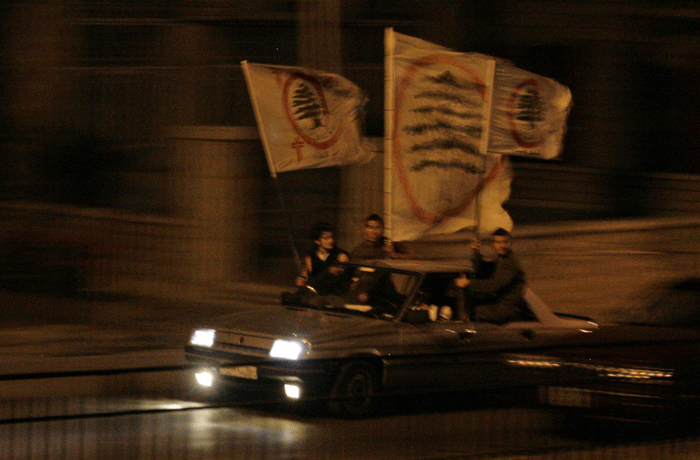
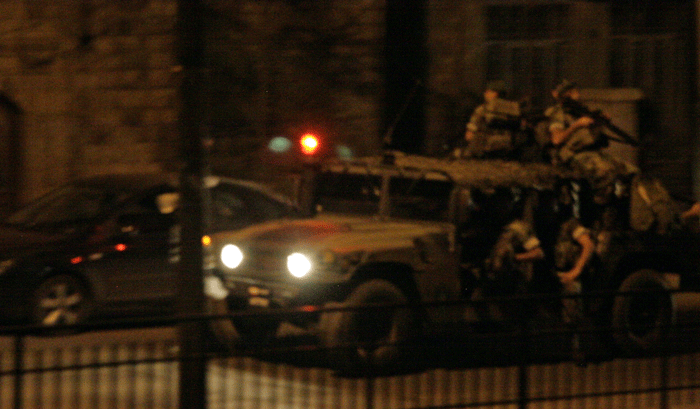
 RSS Feed
RSS Feed